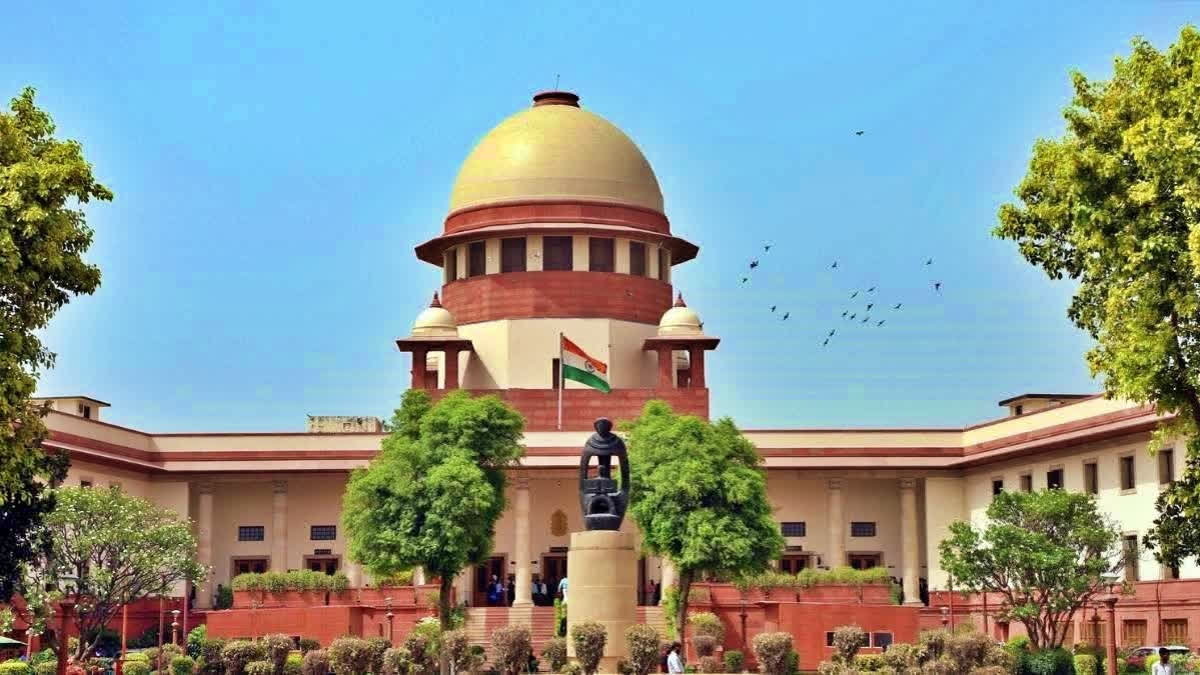New Delhi: The Supreme Court Monday said sexual harassment is a pervasive and deeply rooted issue that has plagued societies worldwide and sexual harassment in any form at the workplace must be viewed seriously and the harasser should not be allowed to escape from the clutches of law.
The apex court said sexual harassment has existed in India for centuries and has been a matter of serious concern, and the development of laws to combat sexual harassment is a testament to the nation's commitment to addressing this problem.
A bench led by Chief Justice of India D Y Chandrachud and comprising justices J B Pardiwala and Manoj Misra said, “Sexual harassment in any form at the workplace must be viewed seriously and the harasser should not be allowed to escape from the clutches of law. We say so because the same humiliates and frustrates a victim of sexual harassment, more particularly when the harasser goes unpunished or is let off with a relatively minor penalty”.
Justice Pardiwala, who authored the judgment on behalf of the bench, said sexual harassment is a pervasive and deeply rooted issue that has plagued societies worldwide. “In India, it has been a matter of serious concern, and the development of laws to combat sexual harassment is a testament to the nation's commitment towards addressing this problem. Sexual harassment has existed in India for centuries, but it was only in the latter half of the 20th century that it began to gain legal recognition”, said Justice Pardiwala.
The bench said, however, at the same time, it should be kept in mind that a charge of this nature is very easy to make and is very difficult to rebut and when a plea is taken of false implication for extraneous reasons, the courts have a duty to make deeper scrutiny of the evidence and decide the acceptability or otherwise of the accusations.
Also read: 'Very strange and contrary to law': SC restores plea seeking quashing of FIR in Madhya Pradesh HC
“Every care should be taken to separate the chaff from the grain. The veracity and genuineness of the complaint should be scrutinized to prevent any misuse of such laudable laws enunciated for the upliftment of society and for equal rights of people without gender discrimination by anybody under the garb of “sexual harassment”, lest the justice rendering system would become a mockery”, said Justice Pardiwala, in the 104-page judgment.
The apex court set aside the Gauhati High Court judgment passed on May 15, 2019, quashing the decision to withhold the 50 percent pension of Dilip Paul, a retired DIG in Sashtra Seema Bal due to a 2011 complaint of sexual harassment of a subordinate woman officer.
The apex court said the high court completely failed to advert itself to the principles laid down by it and mechanically proceeded to set aside the order of punishment imposed by the disciplinary authority on the ground that there was nothing to indicate that Paul was asked whether he pleaded guilty to the charges imputed in the second complaint without applying the principle of “test of prejudice”.
The apex court said the high court committed egregious errors in its judgement. “If the observations of the High Court are accepted, it would lead to a chilling effect, whereby the complaints committee which is deemed to be an inquiry authority would be reduced to a mere recording machine”, said the bench.
The bench said the high court’s reasoning that as the central complaints committee was constituted on the basis of the first complaint, its scope of inquiry was restricted to its content, is completely erroneous.
The apex court also rejected the high court’s finding that the complaints committee could not have put questions to witnesses. The bench noted that the high court was not correct in holding that the complainant was precluded from making the second complaint before the committee merely because she had already made one complaint to the IG, Frontier Headquarters, Guwahati.



